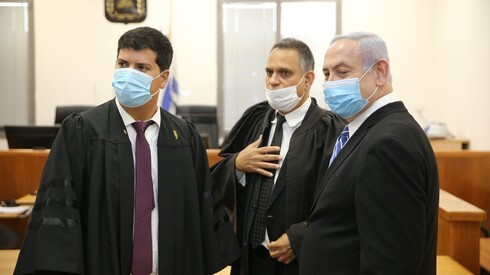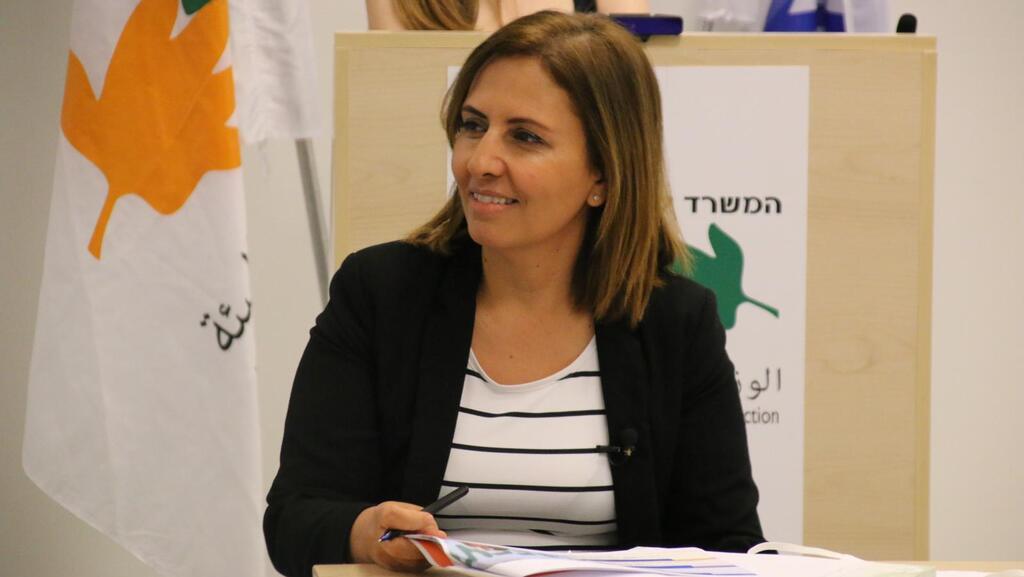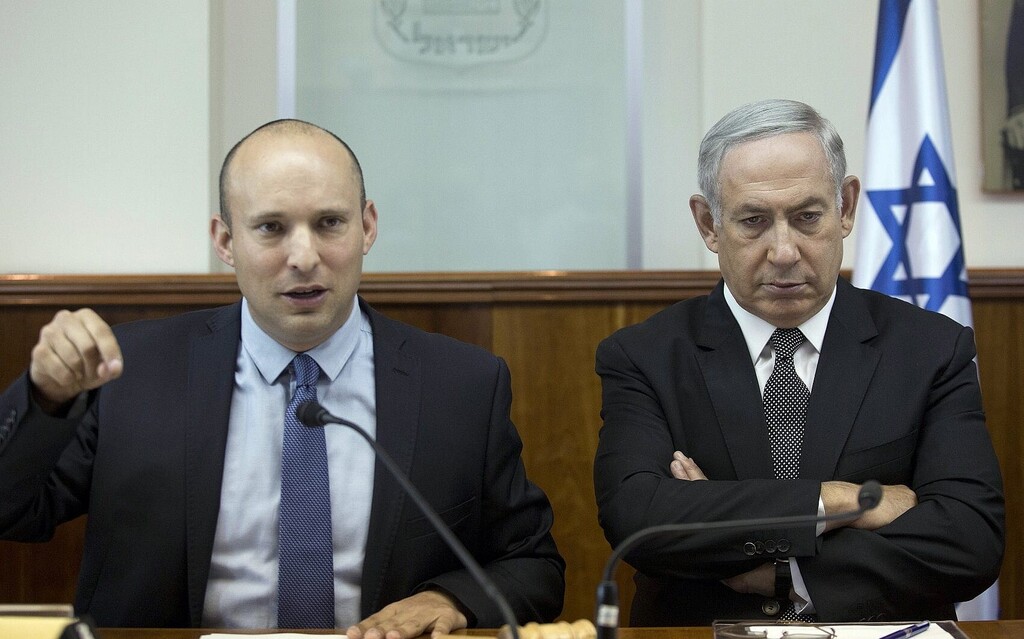Getting your Trinity Audio player ready...
Prime Minister Benjamin Netanyahu is burdened with many worries these days. Even if we set aside his failed handling of the coronavirus pandemic and the subsequent economic debacle, he is still facing grave problems.
His trial on charges of corruption is set to really begin just a few months and that has been keeping him awake at night.
4 View gallery


Benjamin Netanyahu at the opening of his criminal trial in Jerusalem earlier his year
(Photo: GPO)
There is no indication that he is preparing for it, which could lead us to wonder what schemes are being cooked up to prevent the proceedings from going forward.
The Israeli public has lost all faith in Netanyahu's government, something in part brought on by repeated violations of health regulations by members of his cabinet and other officials, violations of the very restrictions they voted to impose on the country.
The prime minister himself hosted his youngest son, who does not live with his parents, for this year's Passover meal in violation of the first lockdown, and just recently, Environmental Protection Minister Gila Gamliel not only violated restrictions on Yom Kippur but also lied about it to health officials conducting an epidemiological investigation.
4 View gallery


Minister of Environmental Protection Gila Gamliel was caught violating the lockdown earlier this month
There is little wonder that the savvy Israelis no longer believe a word uttered by their leadership. This is especially true since the government is constantly issuing erroneous and conflicting regulations, so much so that Health Ministry officials are also confused and often contradict each other, often during the course of a single press briefing.
The Israeli public is intelligent enough to realize when decisions are made out of political or personal considerations. There was no reason to force small businesses to close as part of the lockdown imposed last month. Behind it was Netanyahu's attempt to block the growing number of protesters from demonstrating outside his residence and calling for his ouster.
4 View gallery


Protesters march in Jerusalem against Prime Minister Benjamin Netanyahu
(Photo: Shalev Shalom)
When he realized he could not make the protests stop, he backed down but still failed to let businesses reopen.
Blind to the suffering of Israelis that see their livelihoods in tatters, Netanyahu exists in a world of lavish homes, luxurious private jets, glitzy White House ceremonies and hobnobbing with world leaders.
Now the prime minister is confronted with opposition from within his own camp. Brick by brick his house is crumbling.
Finance Minister Israel is Katz brazenly calling for small businesses to reopen, Netanyahu's long-time Likud rival Gideon Sa'ar, who dared to challenge his leadership last year, is now resigning from the Knesset committee tasked with dealing with the health crisis, because of his disdain for the cabinet's decisions, and Haim Bibas, the Likud strongman who heads the Federation of Local Authorities in Israel, is openly speaking out against him.
Netanyahu must surely be wondering who will be next to oppose him.
But worst of all are the opinion polls, that to Netanyahu's horror, show his numbers declining while his arch enemy Yamina leader Naftali Bennett receives growing support, and is for the first time threatening to present a real alternative to his leadership.
Netanyahu is in a bind. Should he call early elections in December with the state of the economy in shambles? Bennett is gaining in popularity every day as he tours the country receiving warm welcomes wherever he goes.
Should he postpone elections until March? The situation may be no better then.
Bennett, for his part, is being smart. He will probably present his party's leadership without far-right members such as Bezalel Smotrich, who could turn voters off.
Bennett knows that to win he must vow that come what may, he will not join a Netanyahu-led government or recommend the prime minister for an additional term.
Netanyahu understands this. He knows his looming criminal trial and the rise of Yamina are his greatest challenges. Could he really be out of tricks to help his political survival one more time?


